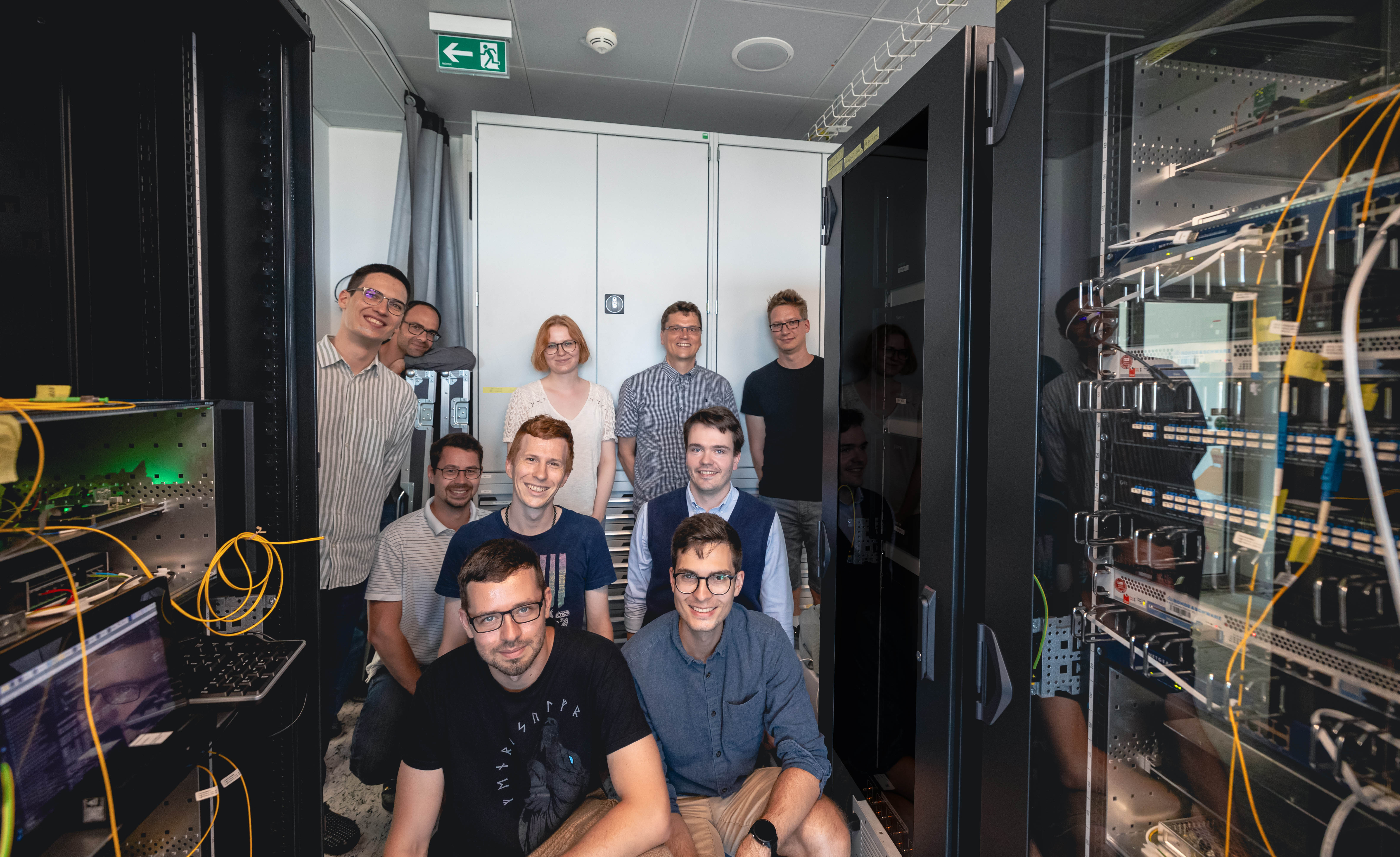Researchers from Jena, Berlin, Erlangen and Oberpfaffenhofen from the QuNET initiative are preparing to connect several users within the Berlin metropolitan region in a quantum-secure network as part of a large-scale key experiment. With this experiment, they will demonstrate the current state of development of the initiative for highly secure communication. QuNET is funded by the Federal Ministry of Education and Research (BMBF).
Launched by the BMBF, the QuNET initiative is working towards making the transmission networks of the future highly secure with the help of quantum communication. The partners of the core consortium - the two Fraunhofer Institutes Heinrich-Hertz-Institut (HHI) and the Institute of Applied Optics and Precision Engineering IOF, DLR Institute of Communications and Navigation, Max Planck Institute for the Science of Light and Friedrich Alexander University Erlangen-Nuremberg - are now conducting another key experiment on the way to achieving this goal: The demonstration of a quantum-secured communication network with multiple users within an urban environment.
"The aim of the key experiment is to connect several users within the Berlin metropolitan region in a quantum-secure manner for the first time beyond pure point-to-point connections," explains Dr. Nino Walenta, who is responsible for the key experiment at Fraunhofer HHI. "In cooperation with Berlin-based partners such as Bundesdruckerei, the aim is to demonstrate how authorities will be able to exchange quantum-secure data worthy of protection in the future." To this end, a network consisting of six quantum nodes is being set up in the Berlin region.
Urban test infrastructure in Berlin
In addition to the Fraunhofer HHI sites at Einstein- and Salzufer, Deutsche Telekom and Bundesdruckerei GmbH sites will also be connected for the key experiment. The network spans over 125 km of fiber optic cable and additional free beam connections through the air. To realize quantum-secure communication, the QuNET team combines various quantum cryptographic systems developed in the initiative to form a heterogeneous overall network.
Application examples of highly secure data transmission
The key experiment will investigate how digital services can be made highly secure in the quantum age. As a federal technology company, Bundesdruckerei GmbH is contributing its expertise in secure infrastructures to the experiment. Sensitive data will be exchanged between several institutions via the network in Berlin and the transmission will be secured using quantum cryptography.
Demonstrations of QuNET developments in a real environment
One challenge in networking several users is the optical routing between the locations. To this end, the QuNET researchers will carry out a series of tests in which the systems and components developed by the scientists for distributing and forwarding the quantum keys within the network will be tested. The focus will be on tests that address the optical switching and routing of quantum channels required in networks under real conditions. In addition, the QuNET team will show how a future heterogeneous network can be realized that combines various transmission technologies for quantum key distribution. For this purpose, free-beam connections will also be integrated into the network, which can be used to bridge gaps or interruptions in fiber optic networks, for example. For the free-beam-based links, the focus is on investigating the challenges of transmitting quantum keys in urban environments.
Progress towards complex multi-user quantum communication networks
The key experiment in Berlin is now the third high-profile demonstration of the QuNET initiative and represents the next step in the ongoing development of the technology: QuNET researchers had already successfully realized a quantum-secured video conference between two federal authorities in August 2021. At that time, a point-to-point connection was implemented between the Federal Ministry of Education and Research (BMBF) and the Federal Office for Information Security (BSI) in Bonn. In June 2023, QuNET researchers successfully exchanged quantum keys in an ad-hoc scenario between two points using a combination of free-beam and fiber links in Jena. The current key experiment demonstrates the complex application scenario of transmitting quantum keys in an urban communication network with multiple access points.
22 August 2024

